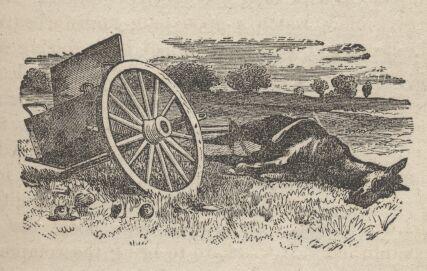The canyon was named for Howard Egan who had been in the area since the 1850s. He later became a Pony Express agent. Egan Canyon was the site of many Indian ambushes. In July 1860, U.S. troops travelling from Fort Ruby to Schell Creek came upon an Indian attack at the station barely saving the lives of the 2 station masters. Indian survivors of that skirmish took revenge on the next Pony Express stop, Schell Creek Station, killing the stationmaster and 2 assistance and running off all of the livestock.
Sources generally agree on the identity of this station site, known as Egan Canyon or Egan's Station, which also appeared on the 1861 mail contract. Howard Egan and others established the station in Egan Canyon in the spring of 1860. On July 15 or 16, 1860, approximately eighty Indians arrived at the station, took stationkeeper Mike Holten and a Pony Express rider named Wilson as prisoners, and helped themselves to station food supplies. Rider William Dennis, enroute from Ruby Valley Station to Egan Station, saw the Indians and slipped away before they discovered him. He found Lieutenant Weed and sixty soldiers, whom he had passed shortly before reaching Egan, and returned with them to the station. The soldiers killed about seventeen or eighteen Indians and freed the two captives. In early October of that same year, Indians returned to the station, killed the men there, and burned the buildings, according to Burton, "in revenge for the death of seventeen of their men by Lieutenant Weed's party." When Richard Burton arrived on October 5, he found part of the chimney, a few pieces of burned wood, and evidence of partially buried bodies.
Sometime later, workers rebuilt the station, which served as an Overland Mail Company stop until 1869. In 1979, the station's stone foundations existed in a dense tangle of rabbit-brush.
Note: Referred to as Rocky Canyon by Orion Clemens
An uglier place for sharp shooting can hardly be imagined. The floor of the kanyon is almost flush with the bases of the hills, and in such formations, the bed of the creek which occupies the sole is rough and winding. The road was vile, - now winding along, then crossing the stream, - hedged in with thicket and dotted with boulders. Ahead of us was a rocky projection which appeared to cross our path, and upon this Point Dangerous every eye was fixed.
Suddenly my eye caught sight of one fire - two fires under the black bunch of firs half way up the hill side on our left, and as suddenly they were quenched, probably with snow. Nothing remained but to hear the war whoop, and to see a line of savages rushing down the rocks. We loosed the doors of the ambulance that we might jump out if necessary and tree ourselves behind it, and knowing that it would be useless to return, drove on at our fastest speed with sleet, snow, and wind in our faces. Under the circumstances, it was cold comfort to find when we had cleared the kanyon that Egan's Station at the farther mouth had been reduced to a chimney stack and a few charred posts. The Gosh Yutas had set fire to it two or three days before our arrival in revenge for the death of seventeen of their men by Lieutenant Weed s party. We could distinguish the pits from which the wolves had torn up the corpses, and one fellow's arm projected from the snow. After a hurried deliberation, in which Kennedy swore, with that musical voice in which the Dublin swains delight, that "shure we were all kilt," - the possession of property not only actuates the mind, and adds industry to its qualities, it also produces a peculiar development of cautiousness, - we unhitched the mules, tethered them to the ambulance, and planted ourselves behind the palisade awaiting all comers, till the boys could bring re-enforcement. The elements fought for us: although two tongues of high land directly in front of us would have formed a fine mask for approach, the snow lay in so even a sheet that a prowling coyote was detected, and the hail like sleet which beat fiercely on our backs would have been a sore inconvenience to a party attacking in face. Our greatest disadvantage was the extreme cold; it was difficult to keep a finger warm enough to draw a trigger. Thomas, the judgeling, so he was called, was cool as a cucumber, mentally and bodily:youths generally are. Firstly they have their preuves to make; secondly they know not what they do.
After an hour's freezing, which seemed a day's, we heard with quickened ears the shouts and tramp of the boys and the stock, which took a terrible load off the exile of Erin's heart. We threw ourselves into the wagons, numbed with cold, and forgot, on the soft piles of saddles, bridles, and baggage, and under heaps of blankets and buffalos, the pains of Barahut. About 3 AM this enjoyment was brought to a close by arriving at the end of the stage Butte Station.
(The City of the Saints, p 467-8)
